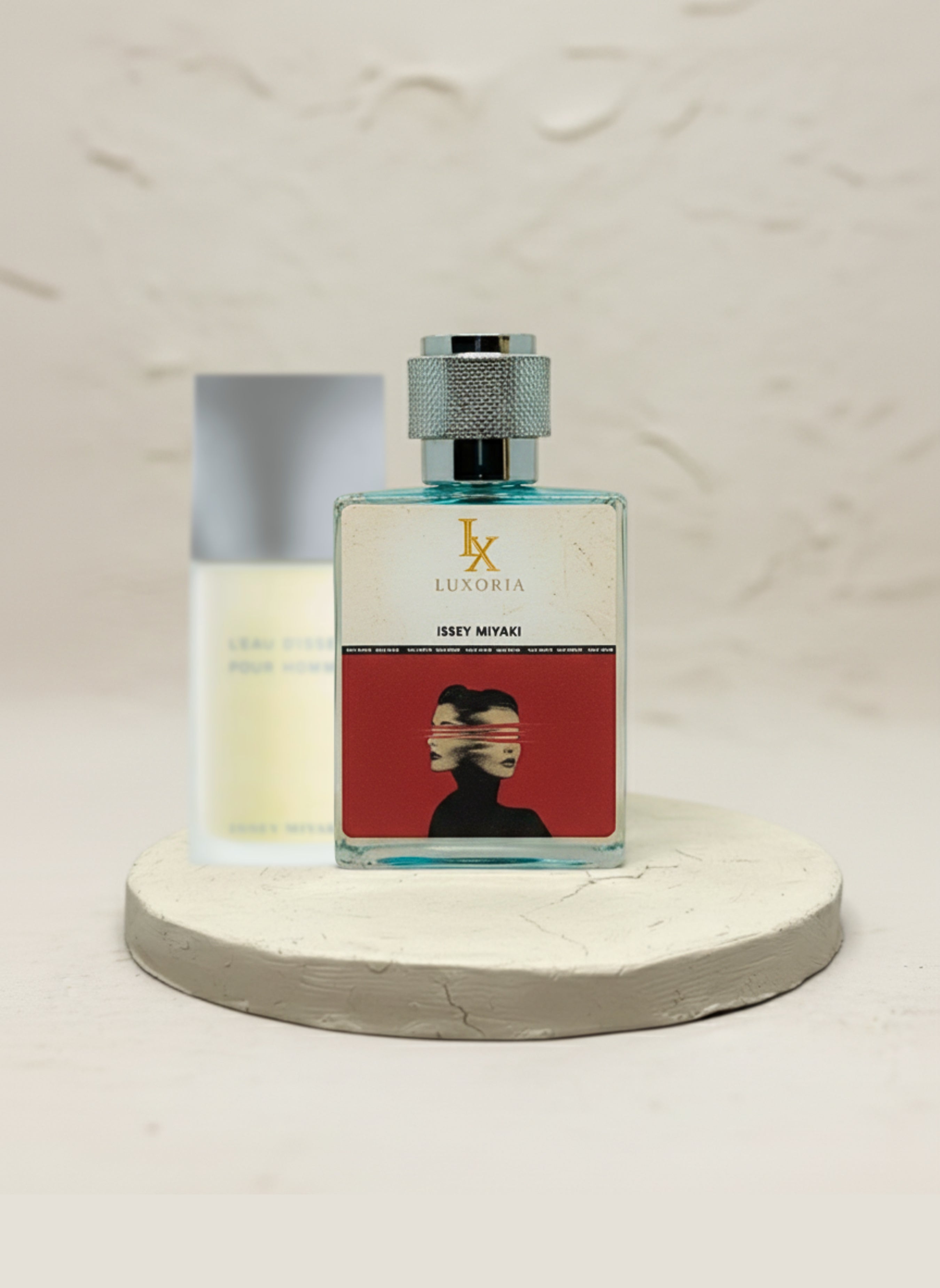
"Safe on skin, strong on scent — alcohol-free perfumes that last."
Issey Miyake
Japanese Fashion Designer & Perfumer (1938–2022)
Issey Miyake (born Kazunaru Miyake, 22 April 1938, Hiroshima, Japan ‒ died 5 August 2022, Tokyo) was one of the most pioneering and influential names in modern fashion and fragrance. (Wikipedia)
Early Life & Education
-
Miyake was born in Hiroshima and survived the 1945 atomic bombing as a child. (Wikipedia)
-
He originally studied graphic design at Tama Art University in Tokyo, graduating in the mid‑1960s. (Wikipedia)
-
Afterward he moved to Paris to study haute couture techniques at the École de la Chambre Syndicale de la Couture Parisienne. He also apprenticed/ worked under designers like Guy Laroche and Hubert de Givenchy. (Encyclopedia Britannica)
Career & Innovation
-
In 1970 he founded the Miyake Design Studio in Tokyo, launching collections and applying a blend of Japanese and Western aesthetics. (Wikipedia)
-
He became famous for his experimentation with materials and techniques. Some of his signature innovations include
• Pleats Please (launched 1993) — lightweight pleated garments that are both sculptural and practical. (Encyclopedia Britannica)
• A‑POC (A Piece of Cloth) — clothing made from a single thread/fabric piece, often produced in innovative ways. (Encyclopedia Britannica)
• Use of unconventional materials and methods (pleating, draping, folding, combining technology with craft) to allow freedom of movement, simplicity, yet striking design. (Hindustan Times)
Fragrance & Other Works
-
In addition to his fashion, Miyake created perfumes, the most famous being L’Eau d’Issey (1992), which became a global bestseller. (Encyclopedia Britannica)
-
His fragrances similarly reflect his design philosophy: purity, simplicity, often inspired by natural elements (water, air, light). (Wikipedia)
Legacy & Recognition
-
Miyake received many honors for his lifetime of innovation, including Japan’s Praemium Imperiale (2005). (Encyclopedia Britannica)
-
He was awarded the Kyoto Prize in Arts and Philosophy (2006) for his contributions to design. (Encyclopedia Britannica)
-
His work changed the way people think about clothing—not merely as ornament, but also functional, inclusive, forward‑looking. He influenced many areas beyond couture: ready‑to‑wear, technology in textiles, accessories, fragrance. (PBS)


